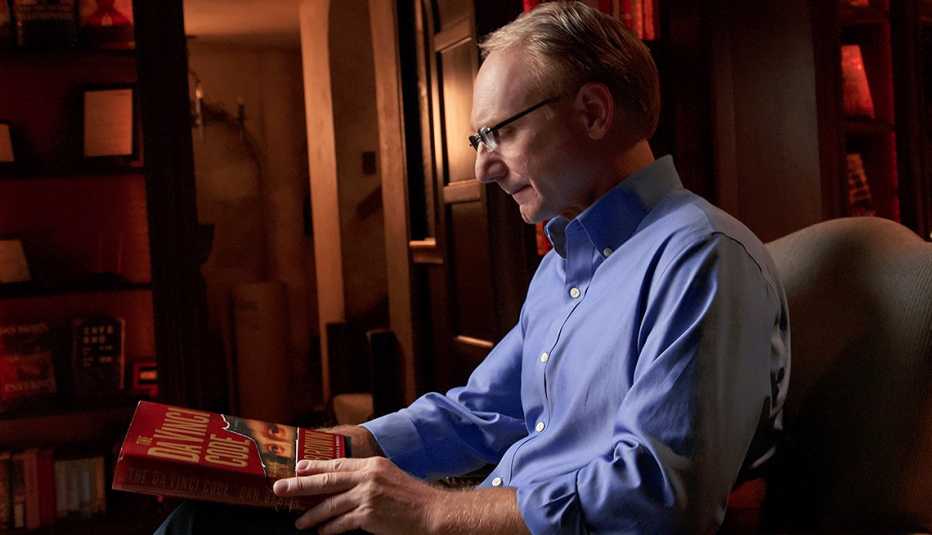Staying Fit


Think you can write the next Da Vinci Code? Dan Brown thinks you can — with his help. Just take his online course on thriller writing, where he’ll explain how he managed to craft five hugely bestselling novels, three of which were turned into Hollywood films.
The class is an easy-to-digest series of 19 videos, each about 15 minutes. It’s offered through MasterClass, which presents a range of online video courses taught by luminaries in their fields so everyone can have “access to genius,” as the website puts it. Brown joins MasterClass writers no less than Margaret Atwood, Judy Blume and James Patterson, all peddling their intellectual prowess for a fee: Brown’s course is $90 for “lifetime access,” or $180 to have access to all of MasterClass’s offerings for a year (learn country music from Reba McEntire, perhaps, or acting from Samuel L. Jackson).


AARP Membership— $12 for your first year when you sign up for Automatic Renewal
Get instant access to members-only products and hundreds of discounts, a free second membership, and a subscription to AARP the Magazine.
The company won’t reveal how many thriller-writer wannabes have signed up for Brown’s class since it first hit the site in November; a spokesperson would only say, “we're excited by the response and engagement from his MasterClass.”
But is thriller-writing really a teachable skill? “Of course!” says Brown, 54, in a recent phone call. The author offers a music analogy: “You can teach anyone to play the piano. There’s some people who have a natural gift for it and will become very good, and others who can learn to play pretty well.”


So how does Brown make his wildly popular “music”? In a nutshell: by incorporating some key elements that all great stories share, he says. Stories are like cars, adds the analogy-loving author. They may look different on the outside, but lift up the hood and they’re basically the same. Brown calls those plot-engine parts “the 3 Cs”: Contract, Clock and Crucible. The Contract is the promise you implicitly make to the reader that you will resolve the uncertainties you introduce; the Clock is the sense that time is running out, a key way to raise any story’s tension level (the Earth will explode unless the hero defuses the bomb within the hour, for instance — you can use that one); and Crucible, the strictures within the plot that keep the hero on a thrilling trajectory (the hero has only one way to save the world, say, and it’s ridiculously dangerous).

































































More From AARP
Your Ultimate Guide to Every Dan Brown Movie and Conspiracy
From 'The Da Vinci Code' to 'The Lost Symbol,' get excited before Robert Langdon returns to screens
Turns Out Tom Hanks Isn’t Just a Stellar Actor — He’s a Great Novelist, Too
Turns Out Tom Hanks Isn’t Just a Stellar Actor — He’s a Great Novelist, Too
9 Essentials for a Happier Life, According to Oprah Winfrey
Her new book ‘Build the Life You Want’ with Arthur C. Brooks offers an action plan for ‘happierness’